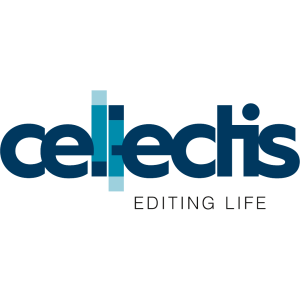Cellectis and Sanofi partner on alemtuzumab as lymphodepletion agent for allogeneic CAR-T
Rhea-AI Summary
Cellectis S.A. (NASDAQ: CLLS) announced a partnership with Sanofi to supply alemtuzumab, an anti-CD52 monoclonal antibody, for use in Cellectis-sponsored UCART clinical trials. The CD52 knockout technology will allow UCART cells to resist alemtuzumab, enhancing T-cell persistence and expansion. Alemtuzumab will be integrated into lymphodepleting regimens for UCART22 in the BALLI-01 trial and UCART123 in the AMELI-01 trial. The agreement signifies a step toward a commercial supply relationship, aiming to drive progress in cancer therapies.
Positive
- Partnership with Sanofi to supply alemtuzumab enhances clinical trial support.
- CD52 knockout technology improves allogeneic CAR T-cell persistence and expansion.
- Integration of alemtuzumab into lymphodepleting regimens for UCART22 and UCART123 signifies strong clinical progress.
Negative
- None.
News Market Reaction 1 Alert
On the day this news was published, CLLS declined 3.78%, reflecting a moderate negative market reaction.
Data tracked by StockTitan Argus on the day of publication.
PARIS, May 11, 2021 (GLOBE NEWSWIRE) -- Cellectis S.A. (NASDAQ: CLLS – Euronext Growth: ALCLS), a clinical-stage biotechnological company employing its core proprietary technologies to develop best-in-class products based on gene-edited allogeneic CAR T-cells (“UCART”) in the field of immuno-oncology, and Sanofi (Euronext: SAN – NYSE: SNY), today entered into a partnership agreement and a supply agreement regarding alemtuzumab, an anti-CD52 monoclonal antibody, to be used as part of a lymphodepleting regimen in certain Cellectis sponsored UCART clinical trials.
Cellectis is the inventor of the combination of CD52 knockout UCART cells with a lymphodepleting regimen with an anti-CD52 antibody such as alemtuzumab. The CD52 knockout renders its UCART product candidates resistant to alemtuzumab as part of the lymphodepleting regimen. Patients’ lymphodepleting regimens reduce host immune cells and should improve allogeneic CAR T-cell expansion and persistence. In Cellectis sponsored trials, alemtuzumab is currently used as part of the lymphodepleting regimen for UCART22 in the BALLI-01 clinical trial in relapsed/refractory ALL, and for UCART123 in the AMELI-01 clinical trial in relapsed/refractory AML, but not for UCARTCS1 which has a self-lymphodepleting activity. Both Cellectis’ UCART22 and UCART123 candidate products have the CD52 gene inactivated by TALEN® gene editing technology.
As part of the agreement, Sanofi will supply alemtuzumab to support Cellectis’ clinical trials and the parties agreed to enter into discussions to execute a commercial supply of alemtuzumab under pre-agreed financial conditions.
About Cellectis
Cellectis is developing the first of its kind allogeneic approach for CAR-T immunotherapies in oncology, pioneering the concept of off-the-shelf and ready-to-use gene-edited CAR T-cells to treat cancer patients. As a clinical-stage biopharmaceutical company with over 21 years of expertise in gene editing, Cellectis is developing life-changing product candidates utilizing TALEN®, its gene editing technology, and PulseAgile, its pioneering electroporation system to harness the power of the immune system in order to target and eradicate cancer cells.
As part of its commitment to a cure, Cellectis remains dedicated to its goal of providing life-saving UCART product candidates to address unmet needs for multiple cancers including acute myeloid leukemia (AML), B-cell acute lymphoblastic leukemia (B-ALL) and multiple myeloma (MM).
Cellectis headquarters are in Paris, France, with additional locations in New York, New York and Raleigh, North Carolina. Cellectis is listed on the Nasdaq Global Market (ticker: CLLS) and on Euronext Growth (ticker: ALCLS). For more information, visit www.cellectis.com.
Follow Cellectis on social media: @cellectis, LinkedIn and YouTube.
TALEN® is a registered trademark owned by Cellectis.
For further information, please contact:
Media contacts:
Margaret Gandolfo, Communications Manager, 646-628-0300, Margaret.gandolfo@cellectis.com
Conor McGoldrick, Zeno Group, 914-355-0927, Conor.Mcgoldrick@zenogroup.com
IR contact:
Simon Harnest, Chief Investment Officer, 646-385-9008, simon.harnest@cellectis.com
This presentation contains “forward-looking” statements within the meaning of applicable securities laws, including the Private Securities Litigation Reform Act of 1995. Forward-looking statements may be identified by words such as “at this time,” “anticipate,” “believe,” “expect,” “on track,” “plan,” “scheduled,”, “should” and “will,” or the negative of these and similar expressions. These forward-looking statements, which are based on our management’s current expectations and assumptions and on information currently available to management, include statements about the timing and progress of clinical trials, the adequacy of supply of clinical supply and alemtuzumab, the ability of an anti-CD52 as alemtuzumab to improve any efficacy, the potential benefit of UCART product candidates. These forward-looking statements are made in light of information currently available to us and are subject to numerous risks and uncertainties, including with respect to the numerous risks associated with biopharmaceutical product candidate development as well as the duration and severity of the COVID-19 pandemic and governmental and regulatory measures implemented in response to the evolving situation. With respect to our cash runway, our operating plans, including product development plans, may change as a result of various factors, including factors currently unknown to us. Furthermore, many other important factors, including those described in our Annual Report on Form 20-F and the financial report (including the management report) for the year ended December 31, 2020 and subsequent filings Cellectis makes with the Securities Exchange Commission from time to time, as well as other known and unknown risks and uncertainties may adversely affect such forward-looking statements and cause our actual results, performance or achievements to be materially different from those expressed or implied by the forward-looking statements. Except as required by law, we assume no obligation to update these forward-looking statements publicly, or to update the reasons why actual results could differ materially from those anticipated in the forward-looking statements, even if new information becomes available in the future.
Attachment







